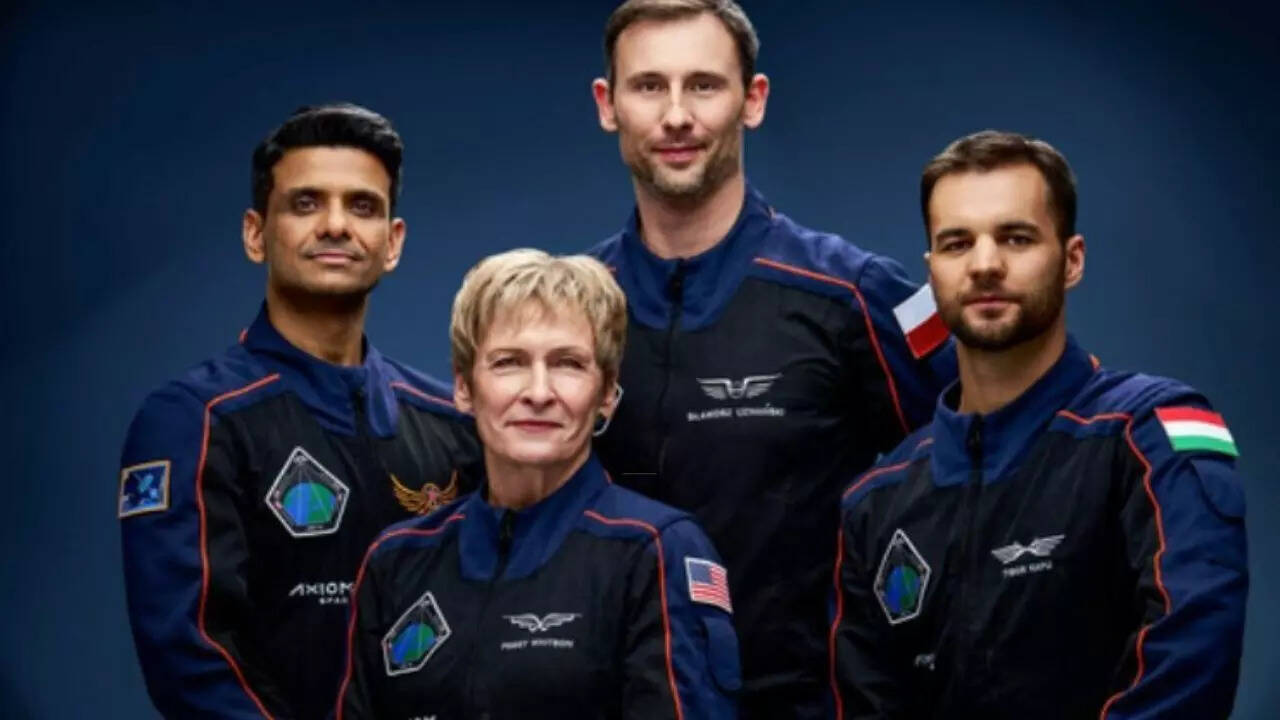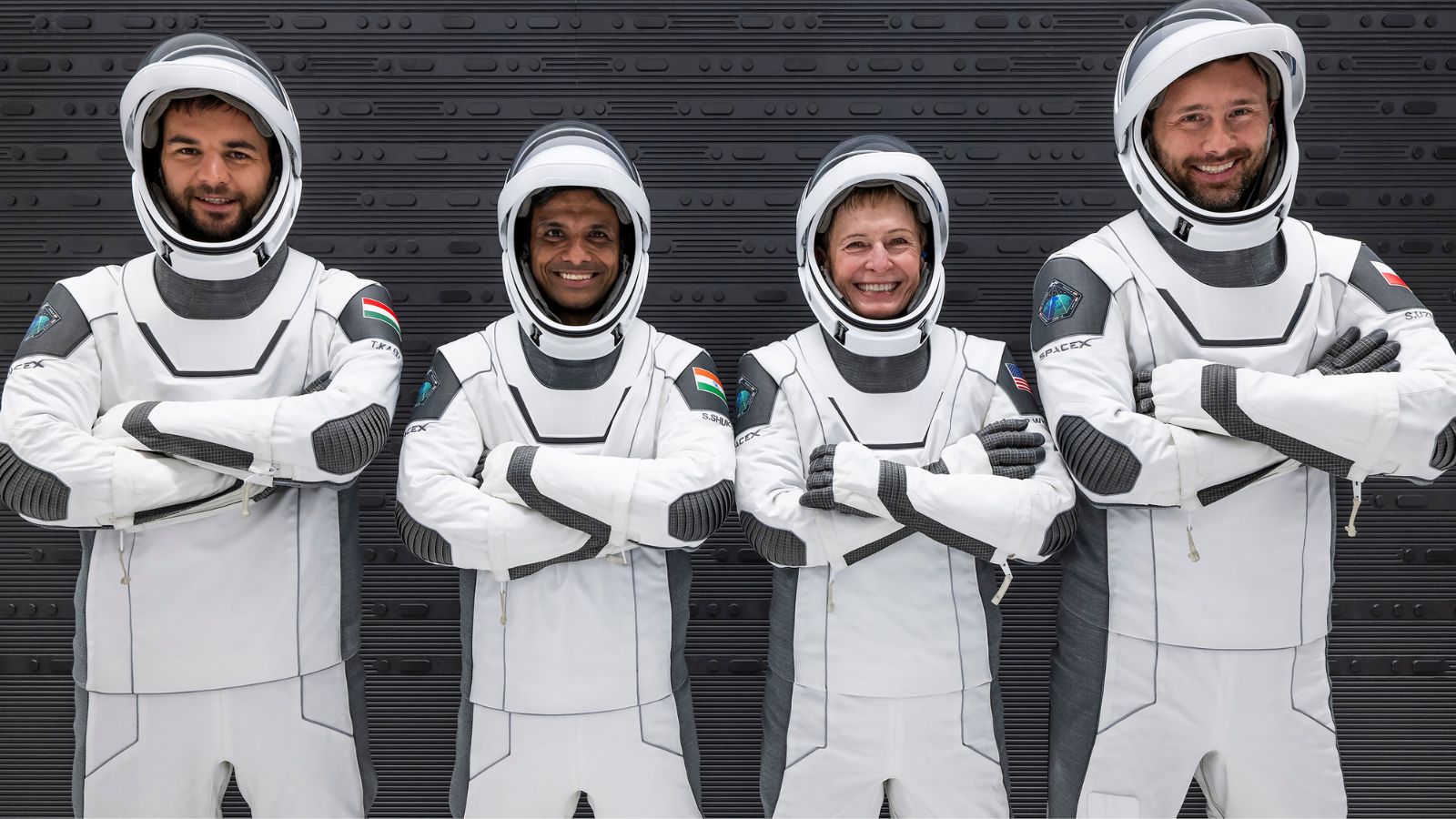Introduction
NASA has officially postponed the highly anticipated launch of NASA delays Axiom Mission 4 (Ax-4) to the International Space Station (ISS) as the agency continues extensive readiness checks following recent repair operations on the station’s Zvezda service module. While no technical issues have been found with the crew capsule or rocket, NASA is taking additional time to ensure the complete functionality and safety of ISS systems before welcoming another crew of international astronauts.

Why NASA Delayed the Axiom Mission 4 Launch
The Ax-4 mission, operated by Axiom Space in partnership with NASA and SpaceX, was originally scheduled to launch on or after June 22, 2025, from Kennedy Space Center in Florida. However, recent maintenance performed on the ISS’s Russian-built Zvezda service module prompted NASA to initiate a comprehensive systemwide review. As the Zvezda module plays a critical role in life support, propulsion, and station stability, any repair work triggers an exhaustive evaluation of interconnected ISS systems to ensure long-term operational stability.
“Because the International Space Station operates as a tightly integrated system, even minor repairs require a careful look across all subsystems to ensure the station can safely support additional crew,” NASA said in a statement. The decision to delay the launch was made as part of standard safety protocol to safeguard the health and safety of the upcoming crew.
About Axiom Mission 4 and Its International Crew
Axiom Mission 4 is one of the latest commercial missions contracted by NASA under its growing public-private partnership model for space operations. The mission is historic, bringing together a diverse international crew for the first time under a fully commercial flight agreement.

Commanding the Ax-4 mission is former NASA astronaut and Axiom’s Director of Human Spaceflight, Peggy Whitson, who brings extensive experience from her prior ISS missions. Serving alongside her are:
- Shubhanshu Shukla (India), pilot – representing the Indian Space Research Organisation (ISRO), marking India’s expanding role in crewed spaceflight.
- Sławosz Uznański-Wiśniewski (Poland), mission specialist – expanding Poland’s spaceflight participation.
- Tibor Kapu (Hungary), mission specialist – a significant milestone for Hungary’s developing space program.
The inclusion of astronauts from India, Poland, and Hungary highlights the growing trend of international cooperation in space exploration and the increasing role of commercial companies in providing transportation services for national space agencies.
SpaceX Falcon 9 and Dragon Capsule Ready
While the ISS undergoes extensive system reviews, SpaceX’s Falcon 9 rocket and Dragon capsule remain fully prepared at Launch Complex 39A at Kennedy Space Center. Engineers have confirmed both vehicles are in excellent condition and are simply awaiting clearance for launch once NASA completes its ISS readiness evaluations.

In the meantime, the entire Ax-4 crew remains in quarantine at Kennedy Space Center, undergoing standard pre-launch preparations, medical monitoring, and mission simulations to ensure optimal readiness when launch clearance is granted.
Importance of the Mission and NASA’s Safety-First Approach
The delay of Axiom Mission 4 reflects NASA’s unwavering commitment to astronaut safety. With life support, environmental controls, and propulsion systems being interdependent onboard the ISS, even minor anomalies require full assurance of system integrity before additional crew members are sent into orbit.
The mission also carries major symbolic weight, as it represents NASA’s increasing collaboration with private partners like Axiom Space while paving the way for commercial low Earth orbit (LEO) operations after ISS retirement planned in the early 2030s. This mission, featuring multiple international partners, signals a future where global space cooperation may depend heavily on commercial space stations and transportation providers.
What Happens Next?
NASA, Axiom, and international partners continue to analyze telemetry data and conduct subsystem simulations on the ISS. Once all reviews are satisfactorily completed, a new target date for Axiom Mission 4 will be announced. Officials have emphasized that no permanent technical obstacles have emerged, and the delay is a precautionary measure to ensure complete mission safety and success.

Once launched, Axiom Mission 4 will carry out multiple scientific experiments, educational outreach programs, and international technology demonstrations aboard the ISS during their multi-week stay in orbit.
Conclusion
NASA’s decision to delay Axiom Mission 4 underscores the complexities of maintaining the International Space Station and supporting ongoing international crew missions. The collaboration between NASA, Axiom Space, SpaceX, and multiple nations continues to push the boundaries of commercial spaceflight and set new standards for safety, scientific research, and global cooperation in orbit. Once clearance is achieved, the world will witness another milestone for commercial space operations with the launch of Axiom Mission 4.
Read more NASA and ISS mission updates
For official updates, visit NASA’s statement here and Axiom Space’s newsroom here.









